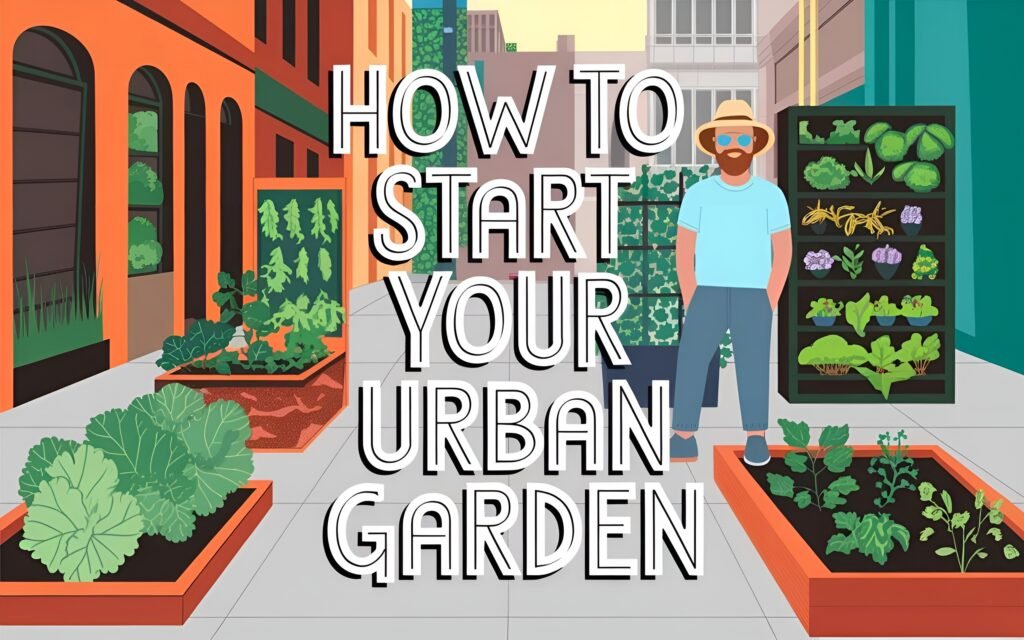Urban gardening means bringing a piece of nature into the city. As more people move to cities, space is limited, but the demand for food and clean air only increases as the population grows. Urban gardening can turn small urban spaces into green spaces of productivity. You can learn the basics of how you can garden in your city, no matter how limited your space is.
Why Start an Urban Garden?
Gardening in the city means it offers a lot to your life. It provides city people with fresh vegetables and fruits and connects people with clean air and nature.
Benefits of Urban Gardening
Health Benefits
Fresh food helps keep you healthy – Fresh vegetables and nutrient-dense foods will encourage you to be healthy.
Environmental Impact of urban gardening
Urban gardening contributes to clean air and helps regulate city temperatures. Clean air reduces carbon emissions.
Community and Social Benefits
Gardens can create bonds between people. These initiatives increase communal social connectivity and help maintain good neighborly relations.
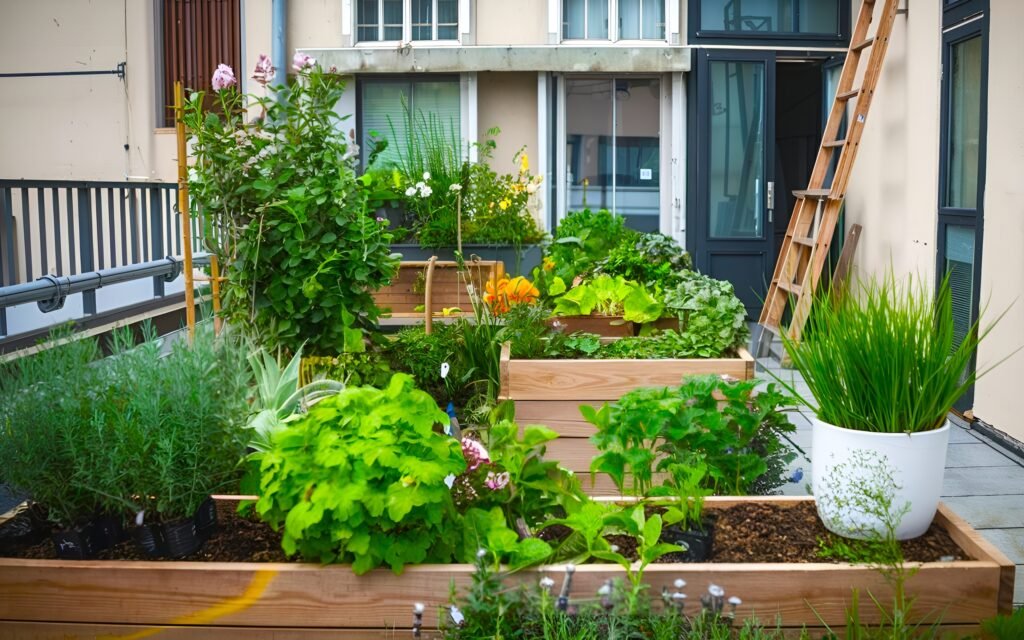
Choosing the Right Space for Urban Gardening
Rooftops, Balconies, and Windowsills
If you are in different places like balcony, roof, next to the window will be considered the best place for urban gardening.
Indoor vs. Outdoor Gardening
Consider the amount of natural light present. Indoor gardens may require grow lights, while natural light is hard to come by in gardens.
Essential Supplies for Urban Gardening
Containers and Planters
The city system uses several tubs to cultivate plants. Choose tubs with drainage holes and cover the soil with materials such as fabric or plastic.
Soil and Compost
Use quality tops for healthy vigorous plants. Compost can enrich the soil by helping plants grow.
Seeds and Seedlings
But plant suitable plants according to growth, herbs, greens and compost plant varieties beautify city gardens.
Understanding Urban Soil and Composting
Types of Soil
City entrepreneurs often use potting misters. lighter than garden soil and more drained.
Composting in Small Spaces
Composting can be done on a small scale in an apartment with a countertop composter or small bin. Which helps in making nutrient-rich fertilizers for your plants.
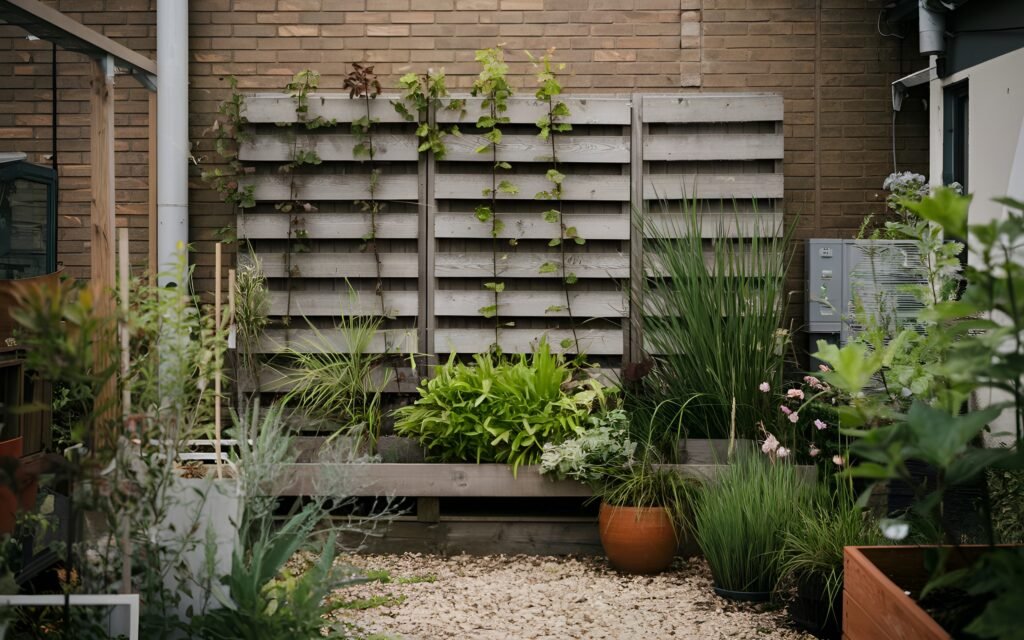
Picking the Right Plants for Your Space
Herbs, Vegetables, and Flowers
Herbs such as basil, mint, and chives are easy to grow for beginners. Compost vegetables such as lettuce, collard greens, and radishes work well.
Considerations for Light and Space
Select plants according to the amount of sunlight that reaches the garden area. Some plants thrive in low light, while others need full light.
Creating a Garden Layout
Maximizing Small Spaces
Plants can be arranged vertically in a small space. But think about the staffing or its use.
Vertical Gardening Techniques
Vertical gardening is an ideal way to use walls and fences, hanging tops, antique mounted planters and trellises can create a lush, green wall.
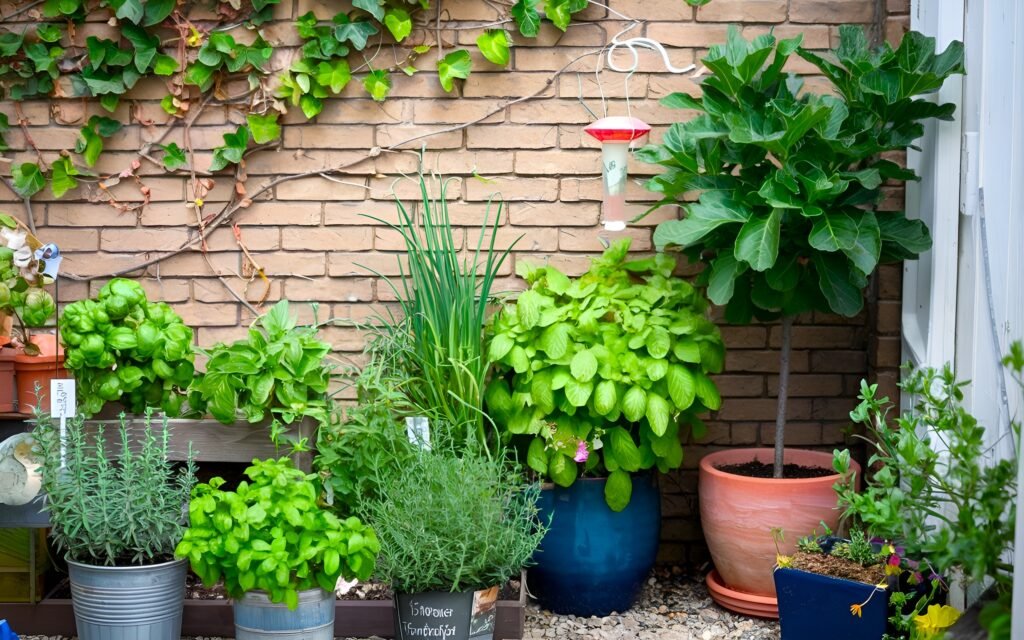
Watering and Irrigation for Urban Gardens
Self-Watering Systems
Watering containers can help plants get water easily, which will meet their daily water needs.
Tips for Water Conservation
Early morning or evening watering is best to reduce evaporation and help maintain soil moisture.
Dealing with Urban Gardening Challenges
Pests and Diseases
Urban trees attract pests, but organic pest control methods such as planting neem oil can help..
Limited Sunlight
When sunlight is limited, Growlight replaces natural light that helps plants grow.
Sustainable Practices for Urban Gardening
Organic Gardening
City entrepreneurs must use organic fertilizers and pesticides to maintain a healthy eco-friendly garden.
Recycling and Upcycling in Gardening
Creatively use any old container box or wooden plastic. It is not only eco-friendly but also adds beauty to the garden.
Maintaining Your Urban Garden
Routine Care and Monitoring
Regularly check plants for nutrient deficits or disease symptoms. Simple tasks like pruning and deadheading help keep plants healthy.
Seasonal Tips
Maintain a tree care routine consistent with seasonal changes. Bring plants indoors if needed in winter and grease them in May to prevent sunburn.
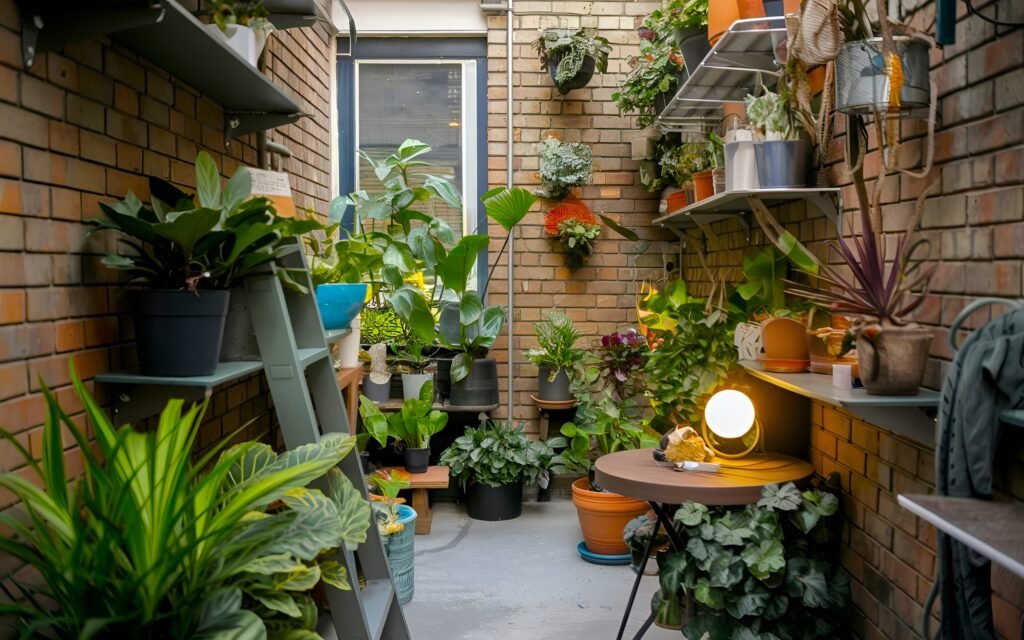
Harvesting and Enjoying Your Urban Garden
When to Harvest
Harvest veggies and greens at their peak maturity. This changes so use the plant release or guide for each plant release.
Cooking and Preserving Your Produce
Use their vegetables in cooking or store them dried or frozen.
Community and Shared Gardens
Benefits of Joining a Community Garden
Community gardens are an alternative approach for those without space. They offer shared plots where you can grow your plants alongside others.
How to Get Involved
You can look to independent resources or online groups to find community gardens in your neighborhood. Learn from others and support fellow entrepreneurs.
Conclusion
Gardening in a city doesn’t require a lot of space or expertise. All you need is some space, some patience, a small window or place you can start a garden. Gardening makes city life healthy and cheerful and much greener.
learn Gardening for Beginners: Your Step-by-Step Guide to Success >>>
FAQs
1. What’s the easiest plant to grow in an urban garden?
Herbs like basil, mint, and parsley are easy to grow, even for beginners.
2. Can I start an urban garden indoors?
If there is little natural light, think about utilizing grow lights.
3. How can I deal with limited space in urban gardening?
Vertical gardening and using small containers can help you maximize limited space.
4. How often should I water my urban garden?
Watering needs vary by plant, but most container plants need watering once a day or every other day, depending on temperature and light.
5. Are urban gardens expensive to set up?
Starting an urban garden can be affordable if you use recycled containers and start with simple plants.

